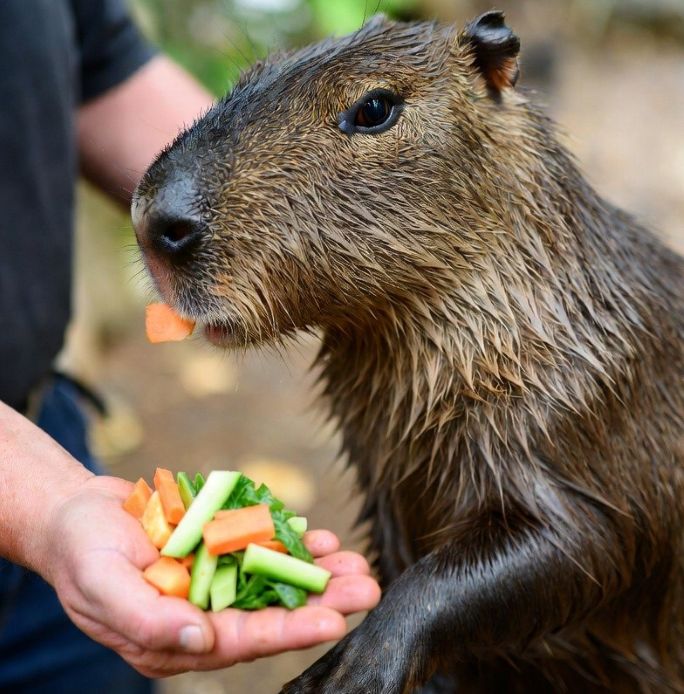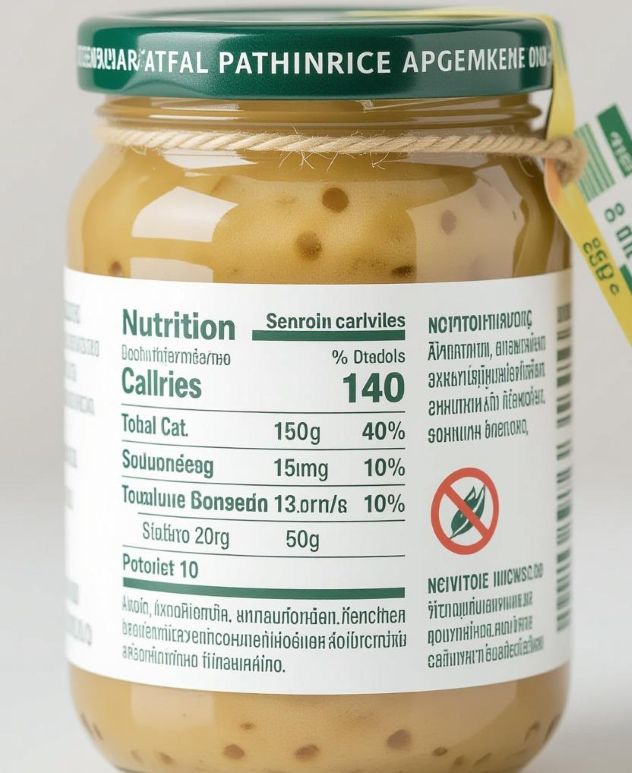Animals in managed care can live longer and healthier lives when their diets are carefully controlled. Nutrition influences immunity, energy levels, mood, and how animals respond to people. At modern petting zoos, food is no longer treated as a casual treat. It is a central part of animal welfare planning.
At places such as Little Zoo Garden Capybara Cafe, feeding programs are designed with intention. Meals are selected based on veterinary advice, species biology, and daily activity patterns. Visitors quickly learn that animal food is not about entertainment. It is about health, safety, and balance.
Why Improper Feeding Causes Hidden Harm

Improper feeding is one of the most common causes of illness in animal cafés. Bread, sugary snacks, and processed foods can damage digestion and teeth. Even foods that seem natural can be harmful when given in the wrong amounts or too often.
To understand how certain foods can have unintended consequences, readers can explore the harmful effects of inappropriate foods and how they impact overall health in humans and animals alike.
Many animals instinctively mask pain or discomfort. A visitor may not notice harm right away, but long-term damage can develop quietly. Digestive stress, nutrient imbalance, and weight gain often appear later, when problems are harder to reverse.
The Role of Structured Feeding Programs
Controlled feeding programs exist to prevent these issues. Care teams prepare measured portions using approved ingredients. Feeding times are scheduled to avoid overconsumption and reduce stress. Consistency helps animals feel secure and calm during busy visitor hours.
Structure also allows caretakers to monitor health changes. Appetite shifts, leftovers, or behavior changes provide early signals that something may be wrong. Adjustments can be made quickly, protecting the animal’s long-term well-being.
Capybaras and the Importance of Diet Precision
Capybaras highlight why feeding precision matters. As large rodents, they require diets rich in fiber with carefully balanced nutrients. Too much sugar can cause dental problems. Too little roughage can disrupt digestion and reduce energy.
When capybaras receive proper nutrition, their behavior changes noticeably. They remain relaxed, curious, and social. This calm presence allows visitors to observe and interact safely, creating positive experiences for both sides.
Why Visitor Education Is Essential
Education is a key part of responsible animal cafés. Clear signage explains which foods are permitted and why others are restricted. Staff members demonstrate proper feeding techniques and supervise interactions closely.
Many visitors arrive with good intentions but limited knowledge. Children may want to share snacks. Adults may assume all fruits and vegetables are safe. Education helps bridge this gap and encourages respect for animal needs.
Food as a Tool for Safety and Trust
Structured diets improve safety for guests as well. Animals that feel comfortable and well-fed are less likely to show stress behaviors. Calm animals reduce the risk of bites, scratches, or sudden movements that could frighten visitors.
Facilities such as Little Zoo Garden Capybara Cafe integrate feeding rules into the overall visitor experience. Rather than limiting enjoyment, these guidelines deepen understanding. Guests learn that ethical animal interaction requires responsibility.
How Nutrition Supports Longevity and Welfare
Balanced nutrition supports longer, healthier lives. Animals with consistent diets face fewer risks of obesity, vitamin deficiencies, and digestive disorders. Routine monitoring ensures meals evolve with age, health status, and seasonal needs.
Over time, these practices create sustainable care models. Animals remain healthier. Staff face fewer emergencies. Visitors gain confidence that the environment prioritizes welfare over novelty.
A New Standard for Animal Cafés
Modern petting zoos are shifting toward education-focused experiences. Feeding becomes a learning moment rather than a novelty act. Visitors leave with a clearer understanding of animal care and greater respect for wildlife.
Responsible food practices protect animals, guests, and staff alike. By placing nutrition at the center of care, spaces like Little Zoo Garden Capybara Cafe set a higher standard for humane, educational, and memorable animal encounters.


 Your skin is often a reflection of what’s going on inside your body. While many factors can impact
Your skin is often a reflection of what’s going on inside your body. While many factors can impact 






 The food that we eat provides our bodies with the most “information” along with the substances they should operate properly. If we do not get the ideal info our metabolic processes have problems, and our health decreases.
The food that we eat provides our bodies with the most “information” along with the substances they should operate properly. If we do not get the ideal info our metabolic processes have problems, and our health decreases.



 Liver Disease – your body provides more insulin plus it causes an increased threat of having a fatty liver whenever we eat foods which are usually prepared. The fat could be saved within the liver along with the veins.
Liver Disease – your body provides more insulin plus it causes an increased threat of having a fatty liver whenever we eat foods which are usually prepared. The fat could be saved within the liver along with the veins.



 Men’s health encompasses many factors, from physical and mental to sexual health. Maintaining optimal health becomes increasingly important as men age, particularly regarding vitality and performance. While a healthy diet and regular exercise form the foundation of good health, many men turn to supplements to enhance their overall well-being and address specific concerns, such as sexual health.
Men’s health encompasses many factors, from physical and mental to sexual health. Maintaining optimal health becomes increasingly important as men age, particularly regarding vitality and performance. While a healthy diet and regular exercise form the foundation of good health, many men turn to supplements to enhance their overall well-being and address specific concerns, such as sexual health.














 Eating healthy food helps in the regular secretion of human growth hormones (HGH), but its healthy effects depend on the levels of HGH circulating in the blood. Food experts highly recommend eating eggs, fish, nuts, seeds,meat, milk, tomatoes, grapes and raspberries in order to maintain normal levels of HGH flowing in the circulatory system.
Eating healthy food helps in the regular secretion of human growth hormones (HGH), but its healthy effects depend on the levels of HGH circulating in the blood. Food experts highly recommend eating eggs, fish, nuts, seeds,meat, milk, tomatoes, grapes and raspberries in order to maintain normal levels of HGH flowing in the circulatory system. Poor sleep reduces the amount of growth hormones produced by a body, because new growth hormones are usually released in pulses during sleep. Studies have shown that the largest pulses and release of hormones are during midnight, while some smaller pulses still occur during the early morning hours. Still, research shows that pulse occurrences depend on a person’s circadian rhythm and internal body clock.
Poor sleep reduces the amount of growth hormones produced by a body, because new growth hormones are usually released in pulses during sleep. Studies have shown that the largest pulses and release of hormones are during midnight, while some smaller pulses still occur during the early morning hours. Still, research shows that pulse occurrences depend on a person’s circadian rhythm and internal body clock.

 Take note that waterborne diseases are more serious than infections, as pathogens cause impairment of vital bodily functions or systems once they invade, multiply and become parasites inside the body. So we shouldn’t be surprised why most people use a water filtration system to further decontaminate water supplied by a utility company and coming out of faucets.
Take note that waterborne diseases are more serious than infections, as pathogens cause impairment of vital bodily functions or systems once they invade, multiply and become parasites inside the body. So we shouldn’t be surprised why most people use a water filtration system to further decontaminate water supplied by a utility company and coming out of faucets. A water filtration system may be a stand alone appurtenance such as a water filter pitcher or as point-of-use water filters that can be installed in kitchen sinks, on countertops or under the sink. W water filtration system uses activated carbon or reverse osmosis methods in removing a diverse range of contaminants, sediments and pollutants.
A water filtration system may be a stand alone appurtenance such as a water filter pitcher or as point-of-use water filters that can be installed in kitchen sinks, on countertops or under the sink. W water filtration system uses activated carbon or reverse osmosis methods in removing a diverse range of contaminants, sediments and pollutants. Better known as Granulated Activated Carbon (GA), it’s an alternative water filtration method for removing chemicals and other pollutants that give water coming out of faucets, its unpleasant taste and odor.
Better known as Granulated Activated Carbon (GA), it’s an alternative water filtration method for removing chemicals and other pollutants that give water coming out of faucets, its unpleasant taste and odor.